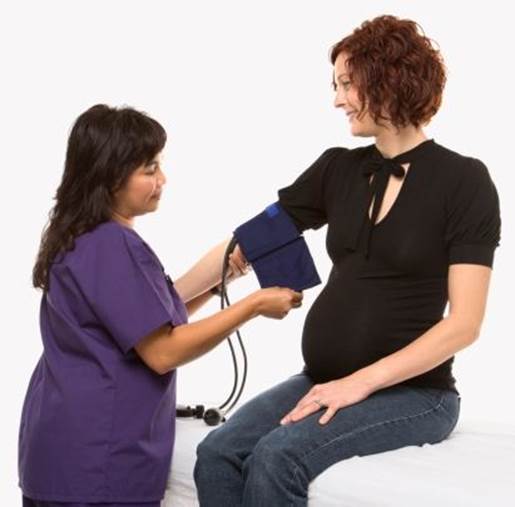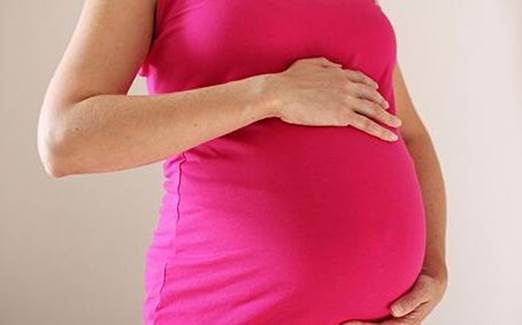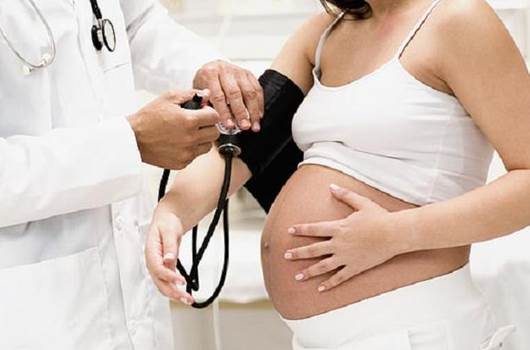Track your baby’s progress
Size: Your
baby is around 48cm. Your bump has also grown, on average measuring 32cm from
the top of your uterus (fundus) to your pelvic bone.
Weight: Your
baby is on average 1, 7 kilograms and you should be starting to gain around 450
grams a week.
Progress:
Even though your baby’s lungs won’t be fully developed until just before birth,
they are starting to warm up already.

Even
though your baby’s lungs won’t be fully developed until just before birth, they
are starting to warm up already.
Pre-eclampsia presents with high blood
pressure (hypertension), Oedema (swelling) and proteinuria (protein in the
urine). If left untreated, the condition can turn into dangerous eclampsia with
symptoms including convulsions, coma and even death. More pregnant women today
are at risk for pre-eclampsia because of our diets and lifestyles, which make
us susceptible to hypertension and Type 2 diabetes. Eclampsia is more likely to
happen with a first baby, or when very young or older women have their first
babies (those younger than 16 or over 40).
The symptoms for this rare but predictable
condition are well known and doctors and midwives are on the lookout for
telltale signs of pre-eclampsia from 20 weeks’ gestation. Once eclampsia
develops, it is very difficult to manage and is usually only resolved when the
baby is delivered – often prematurely.

Pre-eclampsia
presents with high blood pressure (hypertension), Oedema (swelling) and
proteinuria (protein in the urine).
Pre-eclampsia used to be called “toxaemia
of pregnancy”, suggesting that it was caused by a toxin or poison that made the
mother’s body reject her baby. Today we know that eclampsia is a
placenta-related problem that begins with high blood pressure.
Who is at risk?
Women with a family history of this
condition, women who had pre-eclampsia before, those who have a big gap between
pregnancies, overweight women, women who suffer with chronic headaches and migraines
and previous kidney problems are more likely to develop pre-eclampsia.
Women with auto-immune diseases such as
rheumatoid arthritis and lupus are also at risk of developing pre-eclampsia.
What are the symptoms and what should
you do?
Eclampsia can develop over a few weeks, or
it can start suddenly. Typical symptoms include fluid retention with sudden and
unexplained weight gain and swelling, particularly in the hands, feet and face.
The blood pressure goes up and protein is found in the urine when it’s tested.
Women with symptoms may also see spots, feel dizzy and nauseous and complain of
abdominal pain.

Eclampsia
can develop over a few weeks, or it can start suddenly.
Prolonged hypertension damages the kidneys
and during pregnancy this affects mother and baby. Less blood flow to the
placenta means a small-for-dates baby. Another complication is the risk of the
placenta tearing away from the wall of the womb, and that can lead to
inter-uterine death. Underperforming kidneys spill valuable proteins into the
urine. Pre-eclampsia can lead to kidney failure and other very serious
complications.
Women with symptoms of pre-eclampsia must
go to their nearest doctor or clinic straight away. If the symptoms are
serious, the woman will be admitted to hospital and be given tablets
(diuretics) to get rid of excess body fluids; she may have a drip with
magnesium sulphate to lower blood pressure and prevent convulsions. She will
also have to stay in hospital at bed rest until symptoms improve, either to
prolong the pregnancy or to stabilize her condition in preparation for a
C-section – even if the baby is premature.
Because eclampsia can occur without warning
any time after 20 weeks, a woman is carefully monitored for telltale signs at
every antenatal visit.

Women
with symptoms of pre-eclampsia must go to their nearest doctor or clinic
straight away.
She is weighed.
Her blood pressure is checked (hypertension
is diagnosed when it remains at 140/90 mm Hg). Urine is tested for protein.
Hands, feet and face are checked for swelling or edema.
Very occasionally it happens that women
become eclampsic two to four days after giving birth. Treatment is the same as
above, but she may have to stay in hospital for longer depending on how severe
the condition was. Once home, she must have her blood pressure checked at least
every two weeks for the first few months. If it remains high, this may indicate
another medical condition that warrants investigation and treatment.
What to do
A woman should be the right weight for her
height and her blood pressure should be normal before she becomes pregnant.
Although this will not guarantee a problem-free pregnancy, it reduces the risks
for complications. It has also been suggested that women should be tested for
vitamin D deficiencies because this is thought to have something to do with
pre-eclampsia. Repetitive urinary tract infections could indicate kidney
problems. Finding the cause and treating it before pregnancy will help to
protect your kidneys.

A
woman should be the right weight for her height and her blood pressure should
be normal before she becomes pregnant.
Adding less salt to food and limiting
fluids has not been found to be helpful preventing or treating pre-eclampsia.
Unfortunately, if you’re going to get it, there seems to be nothing you can do
to stop it. But it’s important that symptoms are picked up early so that women
can be treated quickly.
If the doctor has no choice but to deliver
the baby early, the Neonatal Intensive Care Unit will be on standby to take
care of the baby. Once Mom has recovered from surgery she can begin
kangaroo-mother-care with her baby.